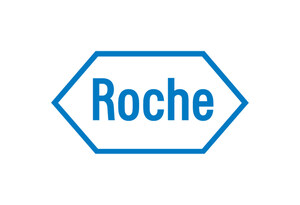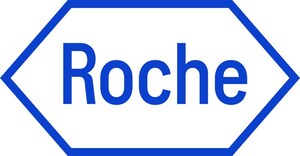
Roche expands Harmony® Prenatal Test to include 22q11.2 deletion testing
-- New test option will be available globally mid-2017 in the Harmony CE-IVD kit and through the test send-out service from Ariosa Diagnostics Inc.
-- Deletion of 22q11.2 is the second most common identifiable genetic cause of developmental delay and major congenital heart disease
PLEASANTON, Calif., June 28, 2017 /PRNewswire/ -- Roche (SIX: RO, ROG; OTCQX: RHHBY) today announced that it has added 22q11.2 deletion testing to the menu of the Harmony® Prenatal Test, a non-invasive prenatal testing service used for assessing the probability of Down syndrome (trisomy 21) and other chromosomal conditions in the fetus. This expanded menu provides laboratories and physicians using Harmony the option to screen for 22q11.2 deletion syndrome, a condition associated with heart defects, poor immune system function, cleft palate, and delayed development. This new offering is available currently in the U.S. through the Ariosa Diagnostics Clinical Laboratory as a test send-out. The Harmony RUO and CE-IVD kit will be available globally in mid-2017.
"Roche is committed to providing the highest quality of NIPT testing and since the launch of Harmony in 2012 we have delivered test results to more than 1 million women worldwide," said Neil Gunn, Head of Roche Sequencing Solutions. "We are pleased that we can now supplement this portfolio and provide accurate cell-free DNA testing for the 22q11.2 deletion to expectant parents, laboratories and healthcare professionals."
About 22q11.2 deletion
The 22q11.2 deletion has been estimated to occur in 1 in every 2,000 to 4,000 live births1. However, this figure may underestimate its prevalence, and some evidence suggests it may be as frequent as 1 in 1,000 pregnancies2. Deletion of 22q11.2 is the second most common identifiable genetic cause of developmental delay and major congenital heart disease after Down syndrome3. Despite its prevalence, 22q11.2 deletion is often missed because of the variability of presenting symptoms.
About the Harmony Prenatal Test
The Harmony Prenatal Test is a blood screening test for pregnant women that can be used as early as 10 weeks of pregnancy. By evaluating fetal cell-free DNA found in maternal blood, including accurate measurement of the fetal fraction of DNA, the test assesses the probability of trisomy 21 (Down syndrome) and other common fetal aneuploidies. The results are intended for prenatal screening and are not intended to be the sole basis for diagnosis. The Harmony test does not screen for potential chromosomal or genetic conditions other than those expressly identified in this document. Expectant parents should discuss positive results with their healthcare provider, who can recommend confirmatory testing where appropriate.
The Harmony Prenatal Test has been used to guide clinical care in over 1,000,000 pregnancies worldwide. For more information, visit www.harmonytest.com.
The Harmony Prenatal Test was developed and its performance characteristics determined by Ariosa Diagnostics, a CLIA-certified and CAP-accredited clinical laboratory in San Jose, CA, USA. This testing service has not been cleared or approved by the US FDA.
1. McDonald-McGinn et al. Genet Med. 2001 Jan-Feb;3(1):23-9
2. Grati et al. Prenat Diagn. 2015 Aug;35(8):801-9
3. Rauch et al. Am J Med Genet A. 2006 Oct 1;140(19):2063-74
About Roche
Roche is a global pioneer in pharmaceuticals and diagnostics focused on advancing science to improve people's lives. The combined strengths of pharmaceuticals and diagnostics under one roof have made Roche the leader in personalised healthcare – a strategy that aims to fit the right treatment to each patient in the best way possible.
Roche is the world's largest biotech company, with truly differentiated medicines in oncology, immunology, infectious diseases, ophthalmology and diseases of the central nervous system. Roche is also the world leader in in vitro diagnostics and tissue-based cancer diagnostics, and a frontrunner in diabetes management. Founded in 1896, Roche continues to search for better ways to prevent, diagnose and treat diseases and make a sustainable contribution to society. The company also aims to improve patient access to medical innovations by working with all relevant stakeholders. Twenty-nine medicines developed by Roche are included in the World Health Organization Model Lists of Essential Medicines, among them life-saving antibiotics, antimalarials and cancer medicines. Roche has been recognised as the Group Leader in sustainability within the Pharmaceuticals, Biotechnology & Life Sciences Industry eight years in a row by the Dow Jones Sustainability Indices (DJSI).
The Roche Group, headquartered in Basel, Switzerland, is active in over 100 countries and in 2016 employed more than 94,000 people worldwide. In 2016, Roche invested CHF 9.9 billion in R&D and posted sales of CHF 50.6 billion. Genentech, in the United States, is a wholly owned member of the Roche Group. Roche is the majority shareholder in Chugai Pharmaceutical, Japan. For more information, please visit www.roche.com.
All trademarks used or mentioned in this release are protected by law.
SOURCE Roche







Share this article